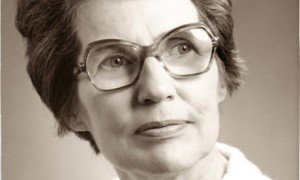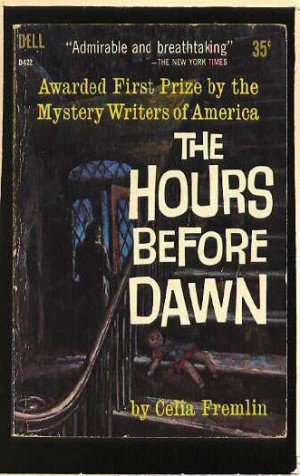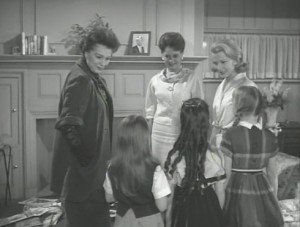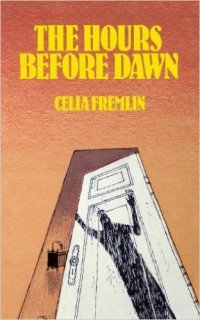At a time when domestic suspense is proving increasingly popular – from Patricia Highsmith and Ruth Rendell to Erin Kelly and Gillian Flynn – readers who enjoy crime that stays close to home would do well to discover the debut novel by Celia Fremlin. To mark the centenary of her birth last year, Faber Finds reissued Fremlin’s novels. The Hours Before Dawn, published in 1958, remains her best-known book – it won the Edgar Award for Best Novel in 1960. But as crime writer Laura Wilson notes in the preface, Fremlin’s concise stories of psychological suspense in a suburban setting have been “woefully underrated” in the last few decades.
For The Hours Before Dawn, Fremlin portrayed a harassed young mother and housewife who, deprived of sleep, begins to comprehend some kind of threat to her family from the female lodger on the top floor. As a reader, you soon side with Louise Henderson, whose husband Mark does little to assist in the domestic drudgery or child rearing (it was the 1950s after all). It is Louise who has to attend to her crying baby son at 2am every night, and she bears the brunt of the complaints from neighbours about the three noisy children. Yet while you root for the put-upon Louise, her overwhelming tiredness does initially suggest that her perception of events might be seriously skewed. ‘I’d give anything – anything – for a night’s sleep,’ is the opening sentence. Her increasing fatigue and inchoate fear about the lodger are tipping her into psychosis.
The supposed villain of the story is Vera Brandon, a classicist (like Fremlin) and schoolteacher who lurks in her room and creeps around the house in a London neighbourhood. One of the early scenes of acute unease occurs when, having been informed by Miss Brandon that she will be out all day, Louise enters the room on the top floor on an errand and discovers the lodger sitting motionless, staring out of the window at her family below. As her suspicion grows, there are potential threats to her children (though the reader sees it more clearly than Louise does) and, inevitably, the sense that her husband is being lured away by this older, educated woman. As she attempts to find out more about this stranger in her house, Louise struggles with the burden of motherhood – the brief snatches of sleep she does manage as she settles her son are filled with vivid nightmares. The hours before dawn of the title is, Louise suspects, the time of day when “sane people slipped over into madness”. Yet it seems that her mysterious lodger may be finding ways to push Louise over the edge.
While the novel is a chilling psychological battle and a disturbing portrayal of motherhood in a less equal era, the claustrophobia is leavened by passages with a witty, ironical tone that compares to the Jackson Brodie novels of Kate Atkinson. Fremlin employs sharp dialogue involving characters across the class divide – it probably helped that she once worked as a charwoman and was involved in the Mass-Observation project about daily lives during World War II. She also writes exceptionally well about children and the kids play a key role in the gradual uncovering of the mystery.
The Hours Before Dawn is a novel of domestic, psychological suspense that keeps you in the dark despite the obvious suspicion about the lodger. There are set-pieces that you expect will deliver a moment of horror – a visit to a fairground comes with a heavy dose of dread – and yet Fremlin often restrains her plot in a way that leaves you even more anxious about the ultimate turn of events. So it’s surprising the novel was never adapted into a British feature film, though it was the basis of an episode of The Hitchcock Hour (as The Lonely Hours, pictured) starring Gena Rowlands in 1963, as well as a German TV movie in 1997.
It’s worth noting that Fremlin was also a mother of three, and we learn much more from the biographical sketch included in the Faber Finds edition. Her first novel emerged from her second baby’s inability to sleep through the night. A resident of Hampstead for 60 years, the book also suggests she relished observing neighbourhood gossip, the minutiae of domestic life and the judgements passed on new mothers.
She also suffered major tragedy – her youngest daughter (then 19) committed suicide in 1968 and Celia’s husband took an overdose soon after, rather than live a debilitating life following a heart attack. In later years, Fremlin would support the right to euthanasia and even admitted to helping at least four seriously ill friends to kill themselves. For some years following the family tragedy, Fremlin could not write and began to take long walks by herself late at night all over the capital. She co-presented a BBC documentary on nocturnal London in the 80s and tried to dispel the idea that dark streets were terrifying, particularly for the elderly. “At 82 years old, I walk exactly where I like at any hour of the night,” she wrote in 1996.
Having resumed her writing in the 70s, Fremlin continued to publish until the mid-90s. Five years after her death in 2009, Faber Finds reissued her 16 novels and three story collections. Start at the beginning with The Hours Before Dawn – a neglected classic that is finding a readership once again.














